Regulierung internationaler Finanzmärkte und Banken
Die Forschungsgruppe "Regulierung internationaler Finanzmärkte und Banken" analysiert internationale Kapitalströme und die Auswirkungen von Regulierungsänderungen auf die Finanzstabilität. Integrierte Finanzmärkte begünstigen eine effiziente Kapitalallokation und Risikoteilung – sie erleichtern aber auch die grenzüberschreitende Übertragung von Schocks.
Dementsprechend hat sich die Bankenregulierung in den letzten Jahren weiterentwickelt, wobei die vollen Auswirkungen dieser Reformen noch unklar sind. Daher konzentriert sich die Forschung der Gruppe auf zwei Bereiche:
Erstens werden die Haupttreiber internationaler Kapitalströme und deren Auswirkungen auf Finanzstabilität untersucht. Zeiten hoher Finanzintegration sind oft gefolgt von Krisen mit nachhaltigen realwirtschaftlichen Folgen. Ziel ist es, zu verstehen, wie eine stabile und effektive Kreditvergabe gewährleistet werden kann.
Zweitens wird untersucht, wie sich Veränderungen in der Regulierung und Aufsicht auf das grenzüberschreitende Bankgeschäft auswirken, insbesondere im Kontext der europäischen Integration. Dazu gehört die Bewertung des Trade-offs zwischen regulatorischer Harmonisierung und unbeabsichtigten Marktverzerrungen.
Zwei Datenprojekte tragen zu diesen Forschungsthemen bei: die International Banking Library, eine webbasierte Plattform für den Forschungsaustausch mit einem vierteljährlichen Newsletter, der mehr als 700 Abonnenten erreicht, und die Financial Markets Directives Database, die die Umsetzung der wichtigsten EU-Vorschriften im Bereich Finanzmärkte mit besonderem Schwerpunkt auf der Europäischen Bankenunion dokumentiert. Gemeinsam fördern sie eine evidenzbasierte Politikanalyse und erhöhen die Sichtbarkeit der Gruppe.
Forschungscluster
Wirtschaftliche Dynamik und StabilitätIhr Kontakt

- Abteilung Finanzmärkte
PROJEKTE
10.2021 ‐ 06.2025
Distributional Effects of Macroeconomic Policies in Europe (DEMAP)
Leibniz-Gemeinschaft
Das Projekt untersucht wie politische Maßnahmen auf dem Level der Europäischen Union, wie zum Beispiel der European Recovery Fund, die Ungleichheit zwischen Haushalten beeinflusst.
07.2017 ‐ 12.2022
Die politische Ökonomie der europäischen Bankenunion
Europäischer Sozialfonds (ESF)
Ursachen für nationale Unterschiede in der Umsetzung der Bankenunion und daraus resultierende Auswirkungen auf die Finanzstabilität.
01.2015 ‐ 12.2017
Dynamic Interactions between Banks and the Real Economy
Deutsche Forschungsgemeinschaft (DFG)
Referierte Publikationen

Foreign Bank Ownership and Income Inequality: Empirical Evidence
in: Applied Economics, Nr. 11, 2020
Abstract
Using country-level panel data over 1995–2013 on within-country income inequality and foreign bank presence, this paper establishes a positive relation between the two, running from higher foreign bank presence to income inequality. Given that foreign bank participation increased by 62% over the period 1995 to 2013, our baseline results imply a 5.8% increase in the Gini coefficient on average over this period, ceteris paribus. These results are robust to the inclusion of country and year fixed effects and to the use of restrictions on foreign bank entry in the host countries as an instrumental variable. We show that this positive effect is channelled through the lack of greenfield entry and the associated lower levels of competition.
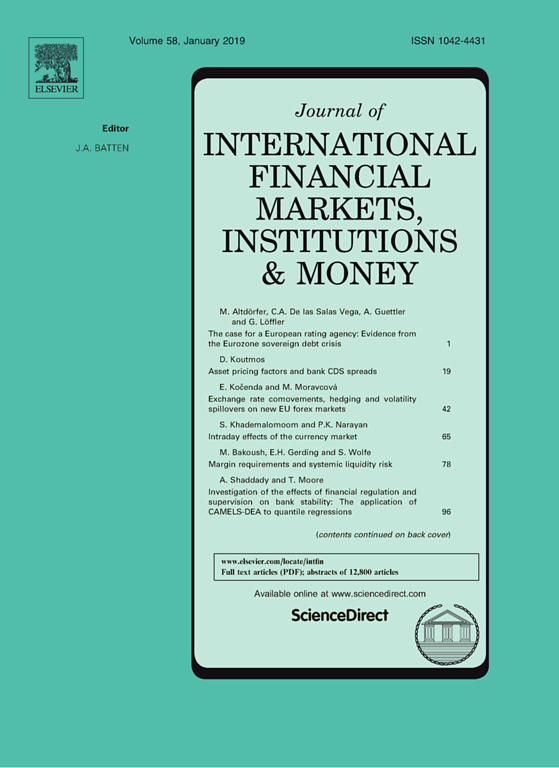
Comparing Financial Transparency between For-profit and Nonprofit Suppliers of Public Goods: Evidence from Microfinance
in: Journal of International Financial Markets, Institutions and Money, January 2020
Abstract
Previous research finds market financing is favored over relationship financing in environments of better governance, since the transaction costs to investors of vetting asymmetric information are thereby reduced. For industries supplying public goods, for-profits rely on market financing, while nonprofits rely on relationships with donors. This suggests that for-profits will be more inclined than nonprofits to improve financial transparency. We examine the impact of for-profit versus nonprofit status on the financial transparency of firms engaged with supplying public goods. There are relatively few industries that have large number of both for-profit and nonprofit firms across countries. However, the microfinance industry provides the opportunity of a large number of both for-profit and nonprofit firms in relatively equal numbers, across a wide array of countries. Consistent with our prediction, we find that financial transparency is positively associated with a for-profit status. Results will be of broad interest both to scholars interested in the roles of transparency and transaction costs on market versus relational financing; as well as to policy makers interested in the impact of for-profit on the supply of public goods, and on the microfinance industry in particular.

Foreign Ownership, Bank Information Environments, and the International Mobility of Corporate Governance
in: Journal of International Business Studies, Nr. 9, 2019
Abstract
This paper investigates how foreign ownership shapes bank information environments. Using a sample of listed banks from 60 countries over 1997–2012, we show that foreign ownership is significantly associated with greater (lower) informativeness (synchronicity) in bank stock prices. We also find that stock returns of foreign-owned banks reflect more information about future earnings. In addition, the positive association between price informativeness and foreign ownership is stronger for foreign-owned banks in countries with stronger governance, stronger banking supervision, and lower monitoring costs. Overall, our evidence suggests that foreign ownership reduces bank opacity by exporting governance, yielding important implications for regulators and governments.
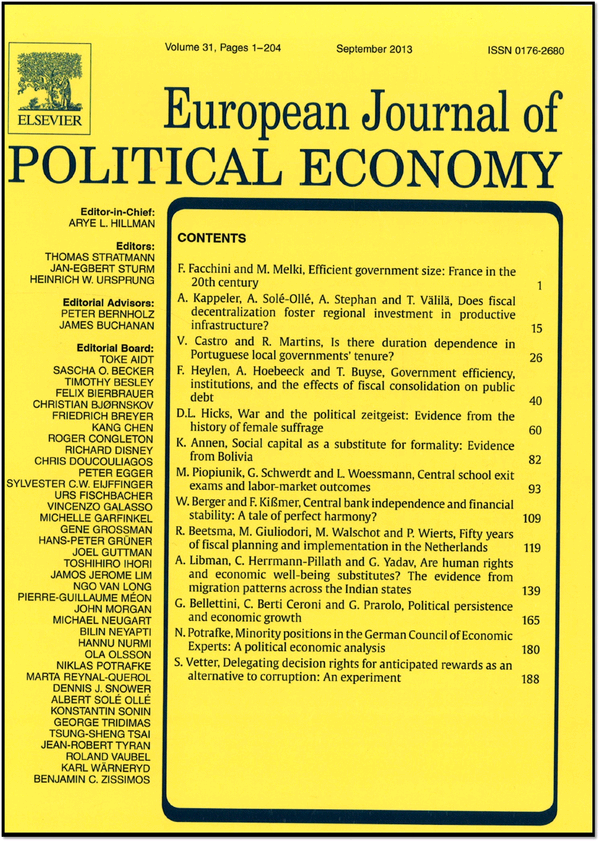
Delay Determinants of European Banking Union Implementation
in: European Journal of Political Economy, 2019
Abstract
Most countries in the European Union (EU) delay the transposition of European Commission (EC) directives, which aim at reforming banking supervision, resolution, and deposit insurance. We compile a systematic overview of these delays to investigate if they result from strategic considerations of governments conditional on the state of their financial, regulatory, and political systems. Transposition delays pertaining to the three Banking Union directives differ considerably across the 28 EU members. Bivariate regression analyses suggest that existing national bank regulation and supervision drive delays the most. Political factors are less relevant. These results are qualitatively insensitive to alternative estimation methods and lag structures. Multivariate analyses highlight that well-stocked deposit insurance schemes speed-up the implementation of capital requirements, banking systems with many banks are slower in implementing new bank rescue and resolution rules, and countries with a more intensive sovereign-bank nexus delay the harmonization of EU deposit insurance more.
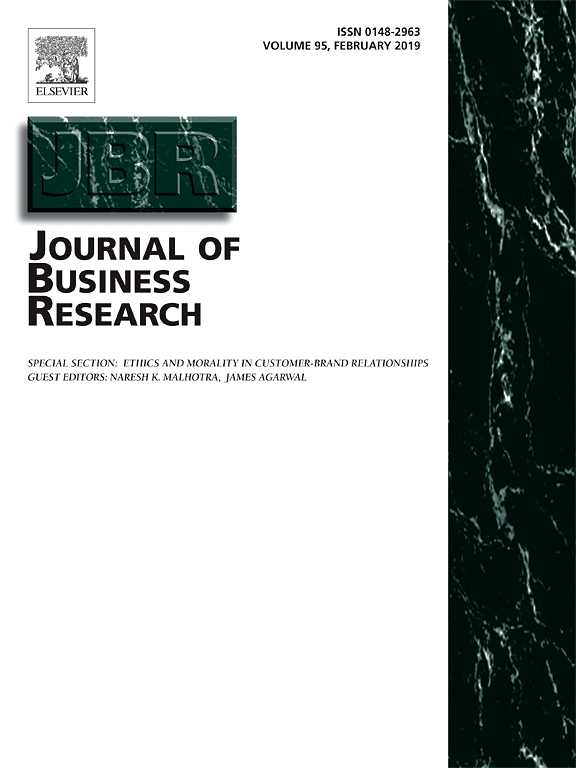
National Culture and Risk-taking: Evidence from the Insurance Industry
in: Journal of Business Research, April 2019
Abstract
The gravity of insurance within the financial sector is constantly increasing. Reasonably, after the events of the recent financial turmoil, the domain of research that examines the factors driving the risk-taking of this industry has been signified. The purpose of the present study is to investigate the interplay between national culture and risk of insurance firms. We quantify the cultural overtones, measuring national culture considering the dimensions outlined by the Hofstede model and risk-taking using the ‘Z-score’. In a sample consisting of 801 life and non-life insurance firms operating across 42 countries over the period 2007–2016, we find a strong and significant relationship among insurance firms' risk-taking and cultural characteristics, such as individualism, uncertainty avoidance and power distance. Results remain robust to a variety of firm and country-specific controls, alternative measures of risk, sample specifications and tests designed to alleviate endogeneity.
Arbeitspapiere
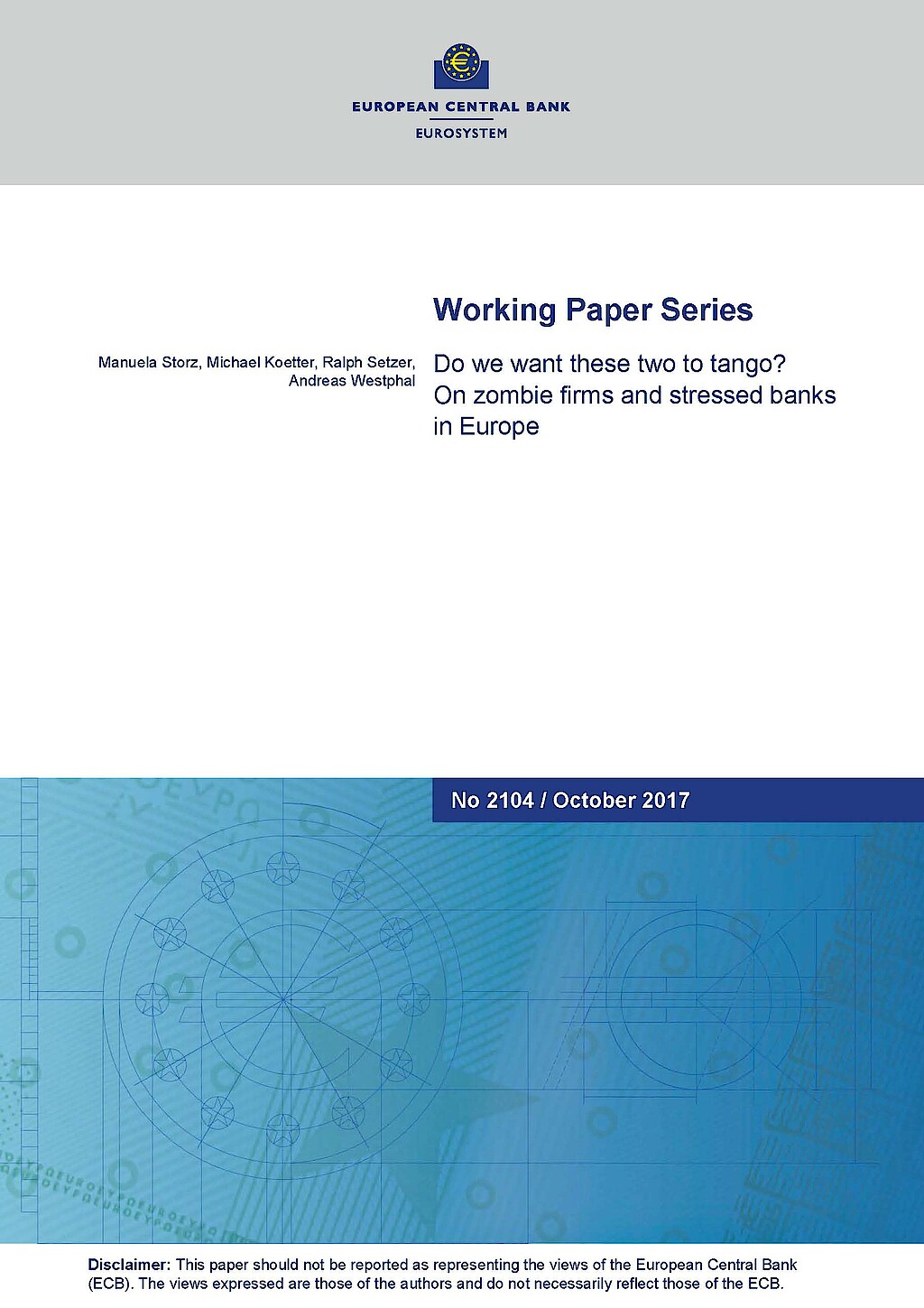
Do We Want These Two to Tango? On Zombie Firms and Stressed Banks in Europe
in: ECB Working Paper, 2017
Abstract
We show that the speed and type of corporate deleveraging depends on the interaction between corporate and financial sector health. Based on granular bank-firm data pertaining to small and medium-sized enterprises (SME) from five stressed and two non-stressed euro area economies, we show that “zombie” firms generally continued to lever up during the 2010–2014 period. Whereas relationships with stressed banks reduce SME leverage on average, we also show that zombie firms that are tied to weak banks in euro area periphery countries increase their indebtedness even further. Sustainable economic recovery therefore requires both: deleveraging of banks and firms.
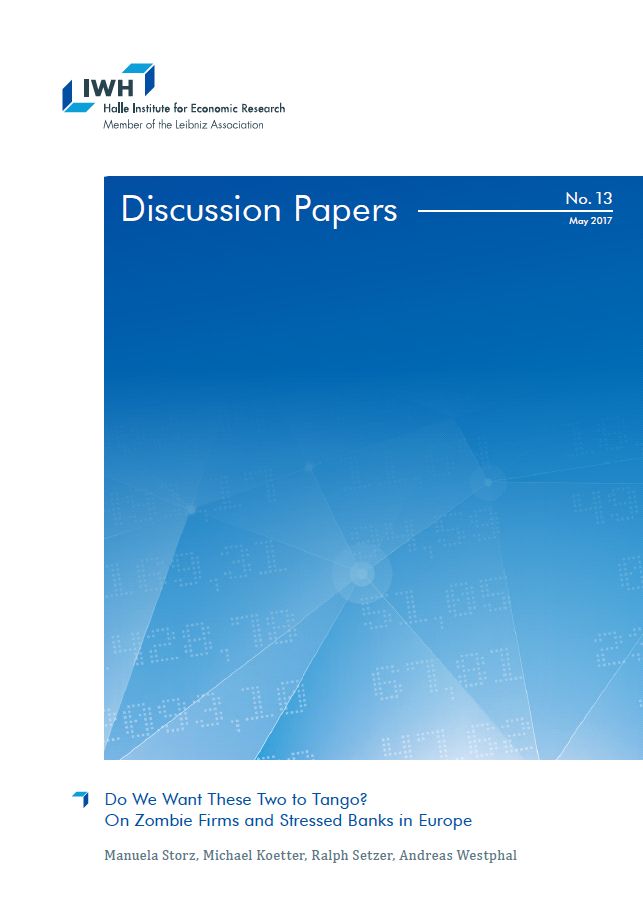
Do We Want These Two to Tango? On Zombie Firms and Stressed Banks in Europe
in: IWH Discussion Papers, Nr. 13, 2017
Abstract
We show that the speed and type of corporate deleveraging depends on the interaction between corporate and financial sector health. Based on granular bank-firm data pertaining to small and medium-sized enterprises (SME) from five stressed and two non-stressed euro area economies, we show that “zombie” firms generally continued to lever up during the 2010–2014 period. Whereas relationships with stressed banks reduce SME leverage on average, we also show that zombie firms that are tied to weak banks in euro area periphery countries increase their indebtedness even further. Sustainable economic recovery therefore requires both: deleveraging of banks and firms.

Inside Asset Purchase Programs: The Effects of Unconventional Policy on Banking Competition
in: ECB Working Paper Series, Nr. 2017, 2017
Abstract
We test if unconventional monetary policy instruments influence the competitive conduct of banks. Between q2:2010 and q1:2012, the ECB absorbed Euro 218 billion worth of government securities from five EMU countries under the Securities Markets Programme (SMP). Using detailed security holdings data at the bank level, we show that banks exposed to this unexpected (loose) policy shock mildly gained local loan and deposit market shares. Shifts in market shares are driven by banks that increased SMP security holdings during the lifetime of the program and that hold the largest relative SMP portfolio shares. Holding other securities from periphery countries that were not part of the SMP amplifies the positive market share responses. Monopolistic rents approximated by Lerner indices are lower for SMP banks, suggesting a role of the SMP to re-distribute market power differentially, but not necessarily banking profits.
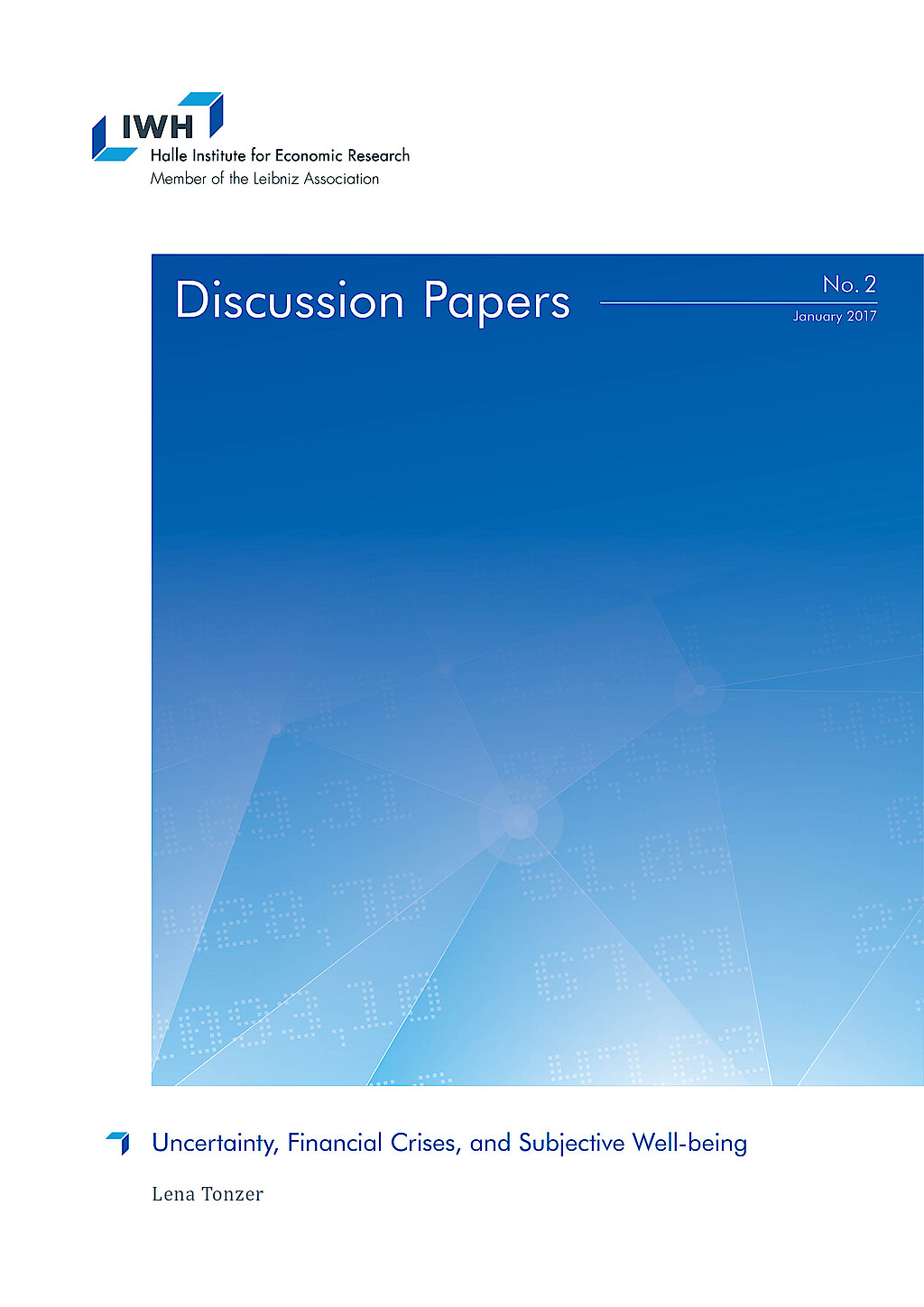
Uncertainty, Financial Crises, and Subjective Well-being
in: IWH Discussion Papers, Nr. 2, 2017
Abstract
This paper focuses on the effect of uncertainty as reflected by financial market variables on subjective well-being. The analysis is based on Eurobarometer surveys, covering 20 countries over the period from 2000 to 2013. Individuals report lower levels of life satisfaction in times of higher uncertainty approximated by stock market volatility. This effect is heterogeneous across respondents: The probability of being unsatisfied is higher for respondents who are older, less educated, and live in one of the GIIPS countries of the euro area. Furthermore, higher uncertainty in combination with a financial crisis increases the probability of reporting low values of life satisfaction.

To Separate or not to Separate Investment from Commercial Banking? An Empirical Analysis of Attention Distortion under Multiple Tasks
in: IWH Discussion Papers, Nr. 2, 2016
Abstract
In the wake of the 2008/2009 financial crisis, a number of policy reports (Vickers, Liikanen, Volcker) proposed to separate investment banking from commercial banking to increase financial stability. This paper empirically examines one theoretical justification for these proposals, namely attention distortion under multiple tasks as in Holmstrom and Milgrom (1991). Universal banks can be viewed as combining two different tasks (investment banking and commercial banking) in the same organization. We estimate pay-performance sensitivities for different segments within universal banks and for pure investment and commercial banks. We show that the pay-performance sensitivity is higher in investment banking than in commercial banking, no matter whether it is organized as part of a universal bank or in a separate institution. Next, the paper shows that relative pay-performance sensitivities of investment and commercial banking are negatively related to the quality of the loan portfolio in universal banks. Depending on the specification, we obtain a reduction in problem loans when investment banking is removed from commercial banks of up to 12 percent. We interpret the evidence to imply that the higher pay-performance sensitivity in investment banking directs the attention of managers away from commercial banking within universal banks, consistent with Holmstrom and Milgrom (1991). Separation of investment banking and commercial banking may indeed be associated with a reduction in risk in commercial banking.















